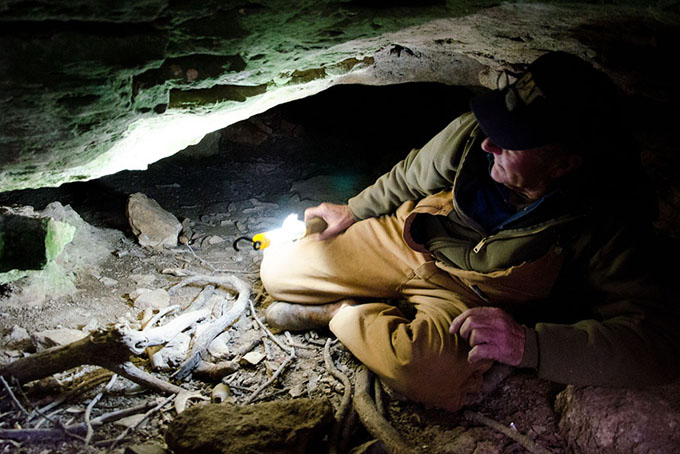
STAMPING GROUND, Ky. — The land agent first came knocking on Vivian and Dean House’s door in July. They sat on the patio of the retired couple’s 85-acre farm in this Central Kentucky town and chatted.
The guy was friendly, the kind of guy Dean could talk to about fishing.
He put the couple at ease and told them his company was interested in running a pipeline through their land. They were later offered more than $165,000 to sign easements.
“My husband, Dean, he told them that he didn’t want ‘em messing up his alfalfa field…and didn’t want big machinery coming in and messing up the farm,” Vivian said about their land, where they raise cattle and grow alfalfa.
They were assured that wouldn’t happen.
They let the company survey for a section of the proposed 1,100-mile Bluegrass Pipeline. It would transport natural gas liquids from fracking in Pennsylvania, Ohio and West Virginia to petrochemical markets in Louisiana.
Men mapped out where the pipeline could cut through the House’s property. They tied hot pink ribbons to fences and stuck thick wooden stakes in the ground.
But Vivian started having doubts when she learned it wasn’t a regular natural gas line, but one that would carry flammable liquid byproducts of natural gas.
She worried that their land, naturally riddled with sinkholes and streams, could be contaminated by leaks.
“We are cattle and hay farmers,” she said. “And if it kills our cattle, we’re just gone.”
A project that pits big energy companies against farmers and environmentalists is causing quite a stir in the land of Thoroughbreds and bourbon.
“They are really enthusiastic about it in other states, but not so much in Kentucky,” Scott Carney, a spokesman for the Bluegrass Pipeline, said in early November.
Some Kentucky landowners told PublicSource they don’t want the pressurized 24-inch diameter underground pipeline coming through their farms because of concerns about public safety, potential destruction of property and environmental harm. Others said they see no public benefit to Kentuckians from a pipeline transporting liquids from the Northeast to make plastics in Louisiana or to export.
The project is a joint venture between two big pipeline companies, Williams Co. and Boardwalk Pipeline Partners. By 2015, the companies want the pipeline up and running, pushing up to 400,000 barrels of natural gas liquids per day.
Natural gas liquids from the shale boom, such as propane, butane and ethylene, are being used to make things like plastic bags and detergents.
The shale revolution has brought increased concerns about pipeline safety. The Bluegrass Pipeline is just one of five proposed pipelines that will move the glut of natural gas liquids from the Marcellus and Utica shale regions in the Northeast.
Pipeline officials assure Kentuckians the Bluegrass Pipeline will be constructed and maintained safely. It will bring jobs to the region, add millions in local tax revenues and contribute to America’s energy independence, they said.
Some concerned Kentucky landowners have turned down big paydays.
After Penny Greathouse refused a $350,000 easement offer, the pipeline officials came back with a $658,000 offer, she said. She turned it down.
“My life and livelihood and health mean a lot more to me than money,” said Greathouse as she leaned against her Ford pickup on the 700-acre cattle farm her family owns in Stamping Ground.
People like Greathouse are organizing grassroots efforts against the pipeline. They’ve held protests in the state capital, knocked on neighbors’ doors and started websites and Facebook pages.
“No Pipeline” and “Stop the Bluegrass Pipeline” signs are plastered to fences along dusty roads.
The proposed pipeline would pass through eight states. New construction of around 500 miles would start in two places, Mercer County, Pa. and Marshall County, W. Va., cut through a big chunk of Ohio and 13 counties in Kentucky and meet up with an existing pipeline in Breckinridge County, Ky., that goes to Louisiana.
Despite the opposition, the pipeline developers seem to be making progress. They’ve signed more than 50 percent of the easements needed in Kentucky as of early December and are more than 40 percent complete along the entire route, according to Carney.